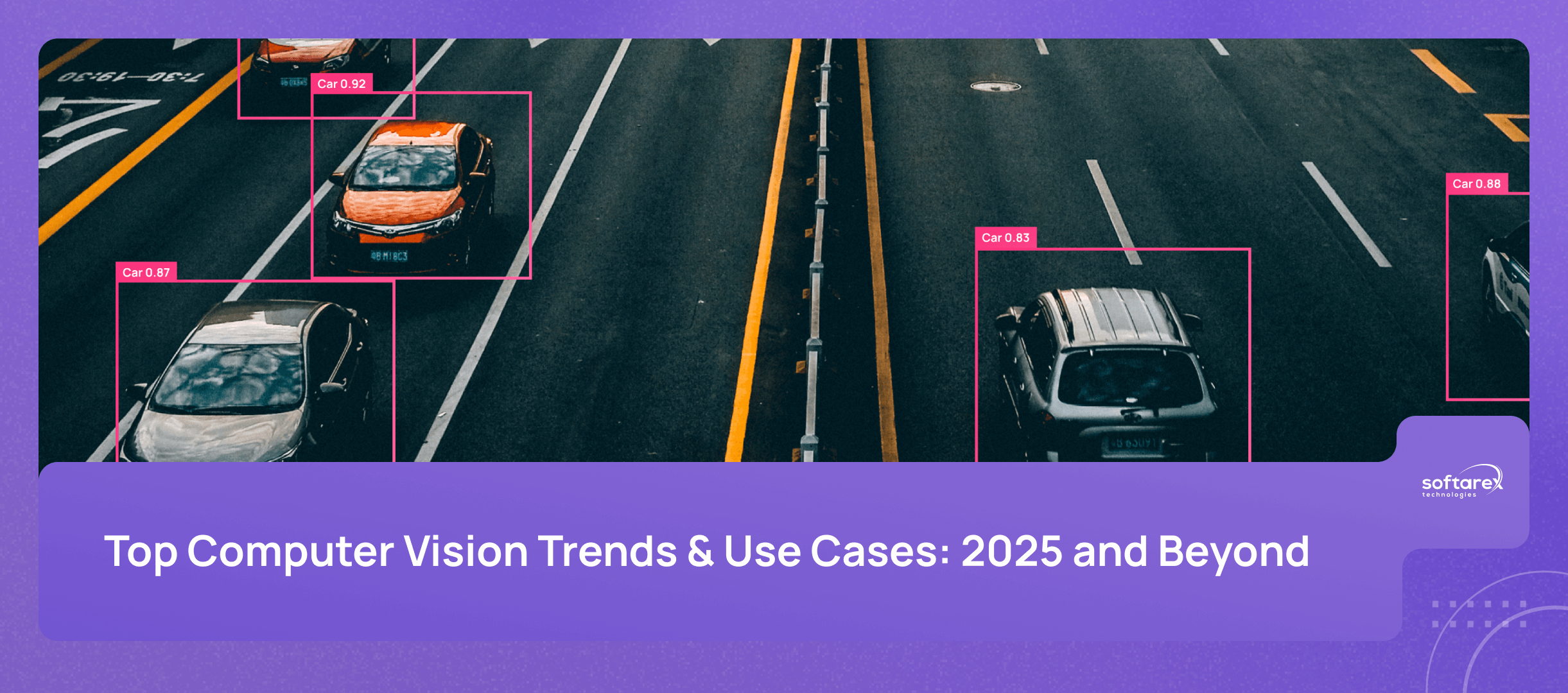The human brain is a powerful system capable of analyzing unstructured data sets, processing them, and “making them loud and simple.” But even this “tool” does not cope with the modern information flows, so people use computers as personal assistants, both ordinary ones, and super-productive systems. However, another problem arose, specifically, the need for cognitive services and structuring the data that is being processed.
Therefore, in this article, we decided to review and examine in depth the three platforms, which, after a comparative analysis, will help in choosing the appropriate one for the new project.
Let’s Analyze Cloud Cognitive Service Giant Platforms: Amazon, Microsoft, IBM
To be brief, what is сognitive computing? This is a set of machine learning algorithms to solve the problems in the field of artificial intelligence. Cognitive services are aimed at democratizing AI, packaging it into separate components.
Cloud services are a set of ready-made REST APIs, in an accessible form giving developers the full power of computer vision algorithms, natural language analysis, voice recognition for use in their applications and etc. The availability of services in the form of REST API allows you to use it on any platform and with your favorite development technologies.
The service API is rather simple and does not require knowledge in the field of data science. All laborious calculations take place in favor of the service, so the performance requirements of the client device are minimal.
In order to meet its purpose, cognitive systems should be:
- Adaptive;
- Interactive;
- Self-learning;
- Contextual.
Comparison of Cognitive abilities
Today experts say that trend technologies like artificial intelligence (AI), machine learning (ML) will become key points of differentiation for the cloud providers. All three leading providers have begun experimenting with offerings in these areas and are likely to expand their services this year.
AWS AI and Machine Learning
Amazon AI is a set of artificial intelligence (AI) services that offer machine learning and deep learning technologies from Amazon Web Services (AWS). These services – Amazon Lex, Amazon Polly, Amazon Recognition, and Amazon Machine Learning — are accessible through an API call or the AWS Management Console.
The Amazon AI suite of services can have text or voice conversations with an end-user using a ChatOps interface. It also has services that can understand human languages, turn text into speech and analyze images to identify places, faces, and objects. The speech and image recognition, text-to-speech, and machine learning services are scalable and fully managed, allowing a developer to include the technology in an application without learning algorithms or to manage the supporting infrastructure.
In 2017 Amazon introduced a number of AI-oriented services as well. It launched DeepLens, an AI-powered camera for developing and deploying machine learning algorithms to use with things such as optical character, image, and object recognition. AWS announced Gluon, an open-source deep learning library for developers to create and train neural networks without knowing AI programming. Quick and easy.
Our company uses several main AI services for research, that interacts with other services like Amazon Simple Storage Service S3, Amazon Lambda, and others that are сarry out infrastructure function:
| Amazon Lex | building conversational interfaces into any application using voice and text | https://aws.amazon.com/lex/?nc2=h_a1 |
|---|---|---|
| Amazon Polly | turns text into lifelike speech, it allows to create applications that talk, and build entirely new categories of speech-enabled products | https://aws.amazon.com/polly/?nc2=h_a1 |
| Amazon Recognition | simplifies adding images and video analysis to applications | https://aws.amazon.com/rekognition/?nc2=h_a1 |
| Amazon Machine Learning | assists developers of all skill levels to use machine learning technology | https://aws.amazon.com/machine-learning/getting-started/ |
IBM Watson
IBM Watson is the product of Bluemix (IBM Cloud), which is a cognitive platform, that represents a new era of computing based on its ability to interact in natural language, process vast amounts of disparate forms of big data, and learn from each interaction. It can sift through and understand massive amounts of big data at unprecedented speeds to assist professionals in understanding data quickly and easily while increasing knowledge and gaining value over time. Watson is a cognitive system that sifts through massive libraries of data to discover insights that can help its users answer simply to the most complex of questions.
Watson, in general, is a large set of software packages that use a wide variety of algorithms. Some of these packages are available in the cloud, and some are for local deployment.
IBM collected a variety of analytical modules and built a system that can cope with a truly huge amount of data. This system works with both, digital and text information in various languages. It has access to the widest range of cognitive technologies available today for quickly and reliably creating intelligent applications from image and video analysis to understanding the feelings, keywords, and objects from the text. Now, based on this cloud API platform, diverse applications, services, and processes are being developed.
Our company works with some services of AI products like Watson Assistant, Watson Text to Speech, Watson Speech to Text, Watson Natural Language Classifier, Watson Natural Language Understanding, Watson Visual Recognition.
IBM Watson Cognitive Services categories
| Watson Assistant | Build and deploy chatbots and virtual agents | https://www.ibm.com/cloud/watson-conversation |
|---|---|---|
| Watson Text to Speech (TTS) | Convert written text into natural-sounding audio in a variety of languages and voices | https://www.ibm.com/cloud/watson-text-to-speech |
| Watson Speech to Text (STT) | Convert audio and voice into written text | https://www.ibm.com/cloud/watson-speech-to-text |
| Watson Natural Language Classifier | Interpret and classify natural language with confidence | https://www.ibm.com/cloud/watson-natural-language-classifier |
| Watson Natural Language Understanding | Analyze text to extract metadata from content such as concepts, entities and sentiment | https://www.ibm.com/cloud/watson-natural-language-understanding |
| Watson Visual Recognition | Tag, classify and search visual content using machine learning | https://www.ibm.com/cloud/watson-visual-recognition |
Microsoft Cognitive Services
Last but not the least, Microsoft has also invested heavily in artificial intelligence, and it offers a machine learning service and a bot service on Azure. Microsoft Cognitive Services (formerly Project Oxford) are APIs that enable natural and contextual interaction with tools that augment users’ experiences via the power of machine learning models from Microsoft. Microsoft Cognitive Services expands on Microsoft’s evolving portfolio of machine learning APIs and enables developers to add intelligent features — such as emotion and video detection; facial, speech and vision recognition, speech and language understanding – into their applications. Cognitive Services builds apps with powerful algorithms. These services work across the devices and platforms such as iOS, Android, and Windows.
Our company does not use Microsoft cognitive services, but we still do some comparisons.
The Microsoft Cognitive Service API is grouped into 5 categories:
| Vision APIs | Analysis of images and video content to identify individuals and emotions, as well as to discover information for decision-making.
Includes Face, Computer Vision, Emotion, Video, Content Moderator. |
https://azure.microsoft.com/en-in/services/cognitive-services/computer-vision/ |
|---|---|---|
| Speech APIs | Text-to-speech, recognition of natural speech, identification of the speaker.
Includes Bing Speech, Custom Speech Service, Speaker Recognition. |
https://azure.microsoft.com/en-in/services/cognitive-services/computer-vision/ |
| Language APIs | Perception of the natural language, i.e. detection and correction of spelling errors, recognition of voice commands and analysis of complex text, including emotional coloring and key phrases.
Includes Bing Spell Check, Language Understanding Intelligent Services (LUIS), Linguistic Analysis, Text Analytics, Web Language Model. |
https://azure.microsoft.com/en-in/services/cognitive-services/computer-vision/ |
| Knowledge APIs | Increase customer knowledge by finding personalized recommendations for goods, events, places, as well as academic articles and journals.
Includes Academic Knowledge, Entity Linking Intelligence Service, Knowledge Exploration Service, Recommendations. |
https://azure.microsoft.com/en-in/services/cognitive-services/computer-vision/ |
| Search APIs | Based on Bing and allow you to implement powerful search tools in applications.
Includes Bing Autosuggest, Bing Image Search, Bing News Search, Bing Video Search, Bing Web Search. |
https://azure.microsoft.com/en-in/services/cognitive-services/computer-vision/ |
And now let’s compare the most popular cognitive services such as AWS AI and Machine Learning, IBM Watson, and Microsoft Cognitive Services.
Comparison Chart
| AWS AI and Machine Learning | IBM Watson | Microsoft Cognitive Services | |
|---|---|---|---|
| Computer Vision | Amazon Recognition | Visual Recognition |
|
| Text translation | Amazon Translate | Language Translator |
|
| Text analysis | Amazon Comprehend, Amazon Transcribe |
|
|
| Bots creation | Amazon Lex |
|
|
| Search for information | – | Discovery (includes Alchemy Data News) |
|
| Document processing | – | Discovery (includes Document Conversion) | – |
| Speech to text conversion | – | Speech to Text | Bing Speech |
| Text to speech conversion | Amazon Polly | Text to Speech | |
| Video processing | – | – | Video |
| Voice identification | – | – | Speaker Recognition |
| Help in decisions making | – | Tradeoff Analytics (supported till 11th of April 2018) | Custom Decision Service |
| System of recommendations | – | – | Recommendations |
And some words about the pricing on cognitive services
Cloud services have quite different approaches to the price policy.
| Amazon Web Services | Microsoft Azure | IBM Cloud | |
|---|---|---|---|
| The Pay-as-you-go | You only pay for the resources and services that you use. | Payment is for using cloud resources, with rounding by minutes. | Requires users to pay for cloud resources as they use them, and includes half a GB of runtime and container memory for free. |
| Subscriptions | One-time upfront payment and then pay no hourly usage fee for the next 12 months. | You can use ready-made MSDN subscriptions with a specific amount of money for cloud computing. | The Subscription tier includes a fixed monthly bill and also provides custom discounted prices. |
| Discounts | The more resources you use, the less the cost of the services provided. Discounts can reach up to 75%. | Work on the basis of the volume of the provided services. | The exact cost of IBM Cloud varies depending on resource usage, deployment model, support and other factors. |
Organizations that base their cloud provider solutions primarily on price, should analyze each project in each case to get the best deal. Suppliers regularly reduce their prices, and you might review these calculations frequently.
As a bonus
| Amazon Web Services | Microsoft Azure | IBM Cloud | |
|---|---|---|---|
| SaaS | + | + | + |
| IaaS | + | + | + |
| PaaS | + | + | + |
| Number of services | 90 | 60 | 170+ |
| Market coverage | 34% | 11% | 6% |
Each considered provider has its own niche in business. AWS provides its services to medium-sized businesses — 59%, Microsoft Azure is focused on small, medium, and large ones in an equal percentage with a small deviation, and IBM Cloud is for big business — 57%.
Why did we just tell you this?
We want to indicate a few cases where each service can be better and make up a general rating.
After comparing the cognitive services of the most large-scale, competing platforms, it’s clear that all of them are currently developing trend technologies: Artificial Intelligence and Machine Learning. Using the APIs of these services makes it possible to create applications that can be heard, seen, spoken, and understood through natural communication methods. They use different platforms and continuously improve the quality of services.
Microsoft cognitive services have the most advanced functionality, while AWS AI and Machine Learning cover the largest market’s part, and, accordingly, users use their services more actively, improving the company’s analytics.
Right now, our company uses IBM Watson as the most perfect and complete cognitive system, which allows us to develop quality solutions. It allows to convert entire industries, various fields of science and technology and also has a user-friendly interface. In our opinion, with all its weak points (unlike Amazon, in weak analytic), IBM Watson is easier to use, does not require payments for any analytical actions within a certain service, it is self-sufficient because with its help you can solve non-trivial business tasks.
All clouds have their strengths and weaknesses:
Amazon Web Service is very strong in terms of trust in the brand and the most popular platform.
Microsoft Azurе has an advantage in performance due to the sale of real kernels, rather than virtual hyper-threading threads (vCPU).
IBM Bluemix (IBM Cloud) is a young platform, compared with Microsoft Azure and Amazon Web Services. It is based on the CloudFoundry open source platform and provides users with access to IBM middleware and software from business partners. Another important advantage of IBM Bluemix is the ability to work with IBM Watson which provides large abilities for data analysis, knowledge management, and other powerful functions.
We truly hope that our article has helped you in choosing the cloud. Even if not, you can simply contact us, and we will help you.









